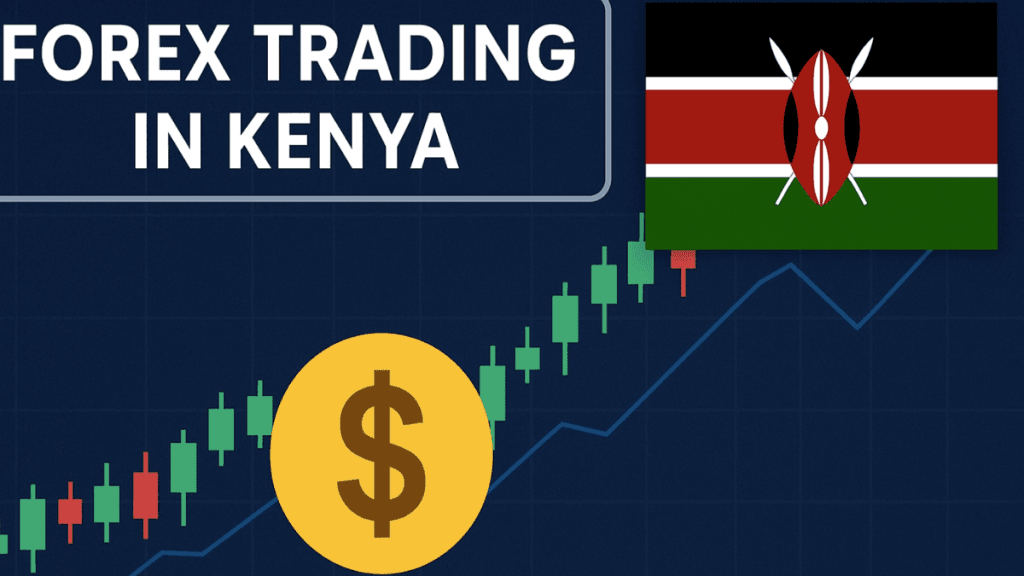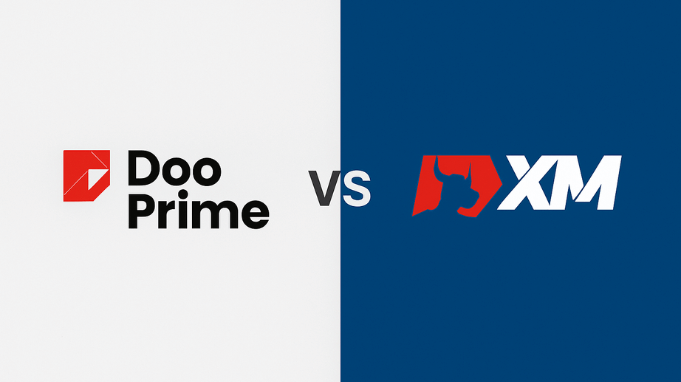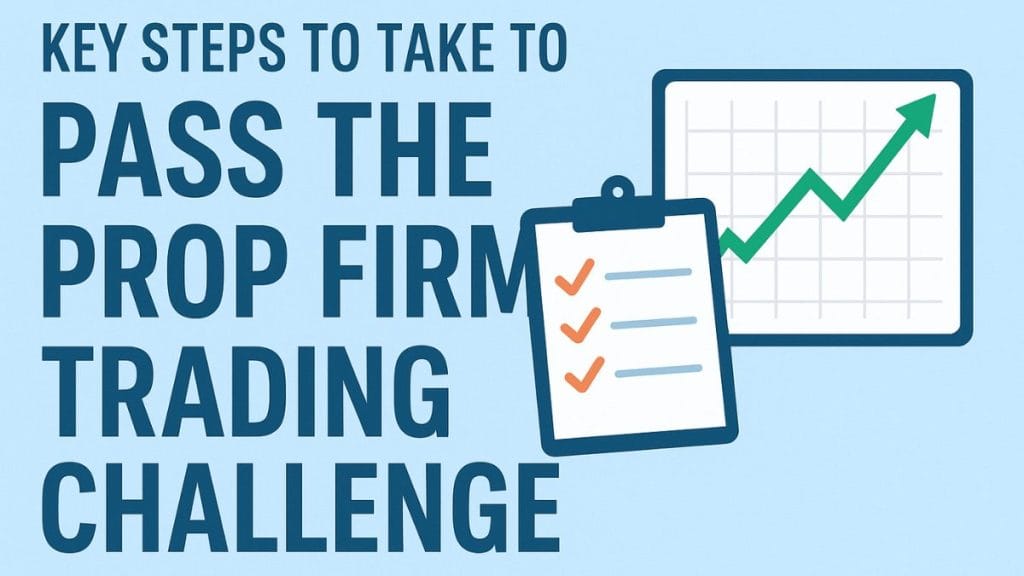Forex Trading in Kenya has grown fast over the past few years, becoming one of the most searched financial topics in the country. Many people are now interested in understanding how forex works, how to start, and how to trade safely. This guide explains everything in simple English so you can learn the basics without confusion.
What Is Forex Trading?
Forex trading is the buying and selling of currencies with the goal of making a profit. Traders take advantage of price changes between currency pairs such as EUR/USD, GBP/USD, USD/JPY, or even USD/KES.
Unlike the stock market, the forex market runs 24 hours a day, five days a week, and is the largest financial market in the world.
Is Forex Trading Legal in Kenya?
Yes. Forex trading is legal in Kenya and regulated by the Capital Markets Authority (CMA). Only licensed brokers are allowed to offer forex trading services to Kenyan residents.
CMA-Regulated Forex Brokers in Kenya
As of the current regulation, some licensed brokers include:
- FXPesa (EGM Securities)
- Exness
- HFM Kenya
- Scope Markets Kenya
Trading with a licensed broker is important because it protects traders from fraud, unfair pricing, and withdrawal issues.
How Forex Trading Works
To understand forex trading, you need to know a few key concepts.
Currency Pairs
Forex is traded in pairs. For example:
- EUR/USD shows how many USD you need to buy one EUR.
- USD/KES shows how many Kenyan shillings are needed for one US dollar.
Pip
A “pip” is the smallest price movement in forex. It helps you measure profit and loss.
Leverage
Leverage allows you to control large positions with a smaller amount of money.
For example, a leverage of 1:100 means you can trade KSh 100,000 with just KSh 1,000.
Leverage increases both potential profit and potential loss.
Lot Size
This is the size of your trade.
- Standard lot: 100,000 units
- Mini lot: 10,000 units
- Micro lot: 1,000 units
Beginners often start with micro lots.
Spread
Brokers earn money through the difference between the buy price (ask) and the sell price (bid). This is called the spread.
How to Start Forex Trading in Kenya
Starting forex trading does not require a lot of money, but it does require knowledge, discipline, and a reliable broker.
Step 1: Choose a Regulated Broker
Your broker should be:
- CMA-regulated or globally reputable
- Offering low spreads
- Reliable with fast withdrawals
- Beginner-friendly with educational resources
Step 2: Open a Trading Account
You will submit:
- National ID or passport
- Proof of residence
- Phone number
- Email address
Brokers usually approve accounts within a few hours.
Step 3: Deposit Funds
You can fund your account through:
- M-Pesa
- Bank transfer
- Visa / Mastercard
- E-wallets (e.g., Skrill)
Most Kenyan brokers accept M-Pesa, making the process fast.
Step 4: Download a Trading Platform
Common platforms include:
- MetaTrader 4 (MT4)
- MetaTrader 5 (MT5)
- cTrader
- Broker’s own mobile app
Step 5: Start with a Demo Account
Always practice first. A demo account helps you learn how the platform works and develop strategies without risking real money.
Step 6: Begin Live Trading with Small Amounts
Start small. Even KSh 1,000 – KSh 5,000 is enough to learn real trading psychology.
How Much Money Do You Need to Start Forex Trading in Kenya?
There is no fixed amount, but beginners usually start with KSh 1,000 to KSh 5,000. Professional traders may use more capital, but what matters most is risk management—not the amount of money.
Why Forex Trading Is Popular in Kenya
Several reasons explain the rise of forex trading in Kenya:
1. Easy Access Through Mobile Money
M-Pesa deposits and withdrawals make forex more accessible than ever.
2. Youth Interest in Online Income
Many young people in Kenya are exploring digital ways to earn money, including through forex trading.
3. Good Education Resources
Local influencers and online educators have increased awareness.
4. Availability of Free Demo Accounts
People can learn without spending real money.
5. Flexible Trading Hours
Forex fits well with part-time or busy schedules.
Major Risks of Forex Trading
Forex trading offers opportunities but also carries risks.
1. Market Risk
Prices can move quickly against you, causing losses.
2. Leverage Risk
High leverage increases both profit and loss. A small mistake can wipe out your account.
3. Emotional Trading
Many beginners lose money because they trade out of fear or greed rather than sticking to a plan.
4. Scams
Some unlicensed “brokers” promise guaranteed profits or force people into fake investments. Avoid anyone who:
- Guarantees returns
- Trades for you without a license
- Asks for “activation fees.”
- Promises unrealistic profits
How to Trade Forex Safely in Kenya
Trading safely is more important than trading fast.
Use These Risk Management Tips:
- Risk only 1–2% of your capital per trade
- Always use stop-loss orders
- Avoid overtrading
- Don’t chase losses
- Withdraw profits regularly
- Keep a trading journal to track your performance
Best Forex Trading Strategies for Beginners in Kenya
Beginners should use simple strategies that are easy to understand and follow.
1. Trend-Following Strategy
You trade in the direction of the trend using tools like:
- Moving Averages
- Trendlines
2. Breakout Strategy
You trade when the price breaks an important support or resistance level.
3. Pullback Strategy
You wait for the price to retrace before entering the trend.
4. News Trading (For Advanced Traders)
Traders respond to major economic announcements like:
- Interest rate decisions
- Inflation reports
- Employment data
Beginners should be careful with news trading due to volatility.
Taxes on Forex Trading in Kenya
Forex income is considered taxable under Kenyan law. Traders are expected to declare income and pay tax based on the amount earned.
Consult a licensed tax expert if you are unsure about reporting forex earnings.
Is Forex Trading Profitable?
Forex trading can be profitable, but it is not guaranteed.
Success comes from:
- Education
- Practice
- Discipline
- Good risk management
Most beginners lose money because they trade without a plan or chase quick profits. Treat forex like a professional skill—not a get-rich-quick scheme.
Who Should Consider Forex Trading in Kenya?
Forex may be suitable if you are:
- Willing to learn
- Patient
- Disciplined
- Ready to handle risk
- Not looking for instant results
If you expect a guaranteed income, forex may not be right for you.
Final Thoughts
Forex trading in Kenya will continue to grow as more young people learn about financial markets and digital income. With proper education, regulated brokers, and responsible trading habits, Kenyans can trade safely and make informed decisions.
Always remember: Forex success is built on knowledge, patience, and discipline not luck.
If you’re beginning your trading journey, don’t miss our list of the best forex brokers in Kenya and our tutorial on how to start forex in Kenya with 1000 Ksh. They’ll help you build a strong foundation.
Vincent Nyagaka is the founder of Chweya, where he breaks down complex financial topics into simple insights. A trader since 2015, he uses his market experience to help readers better understand investing, trading, and personal finance.



